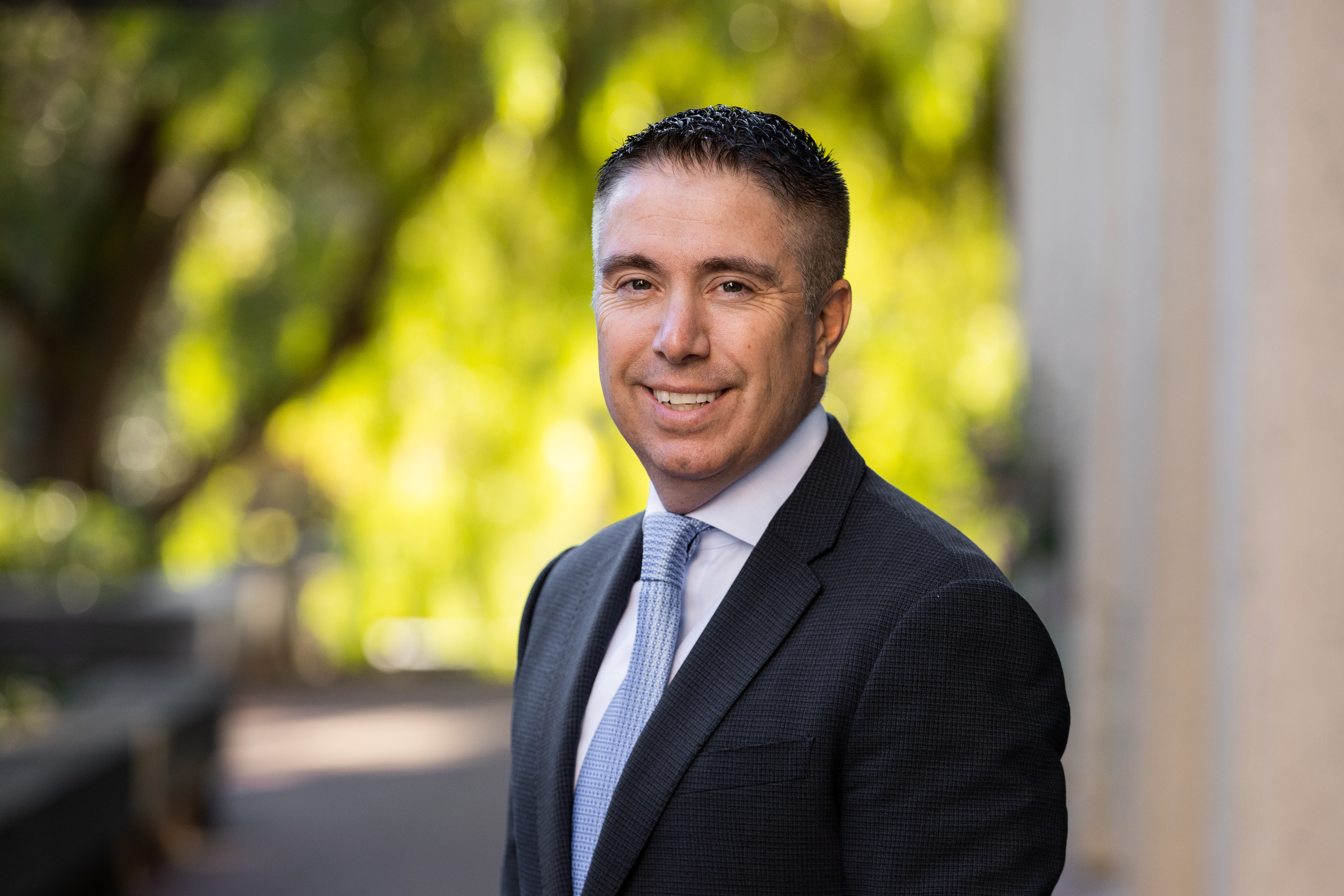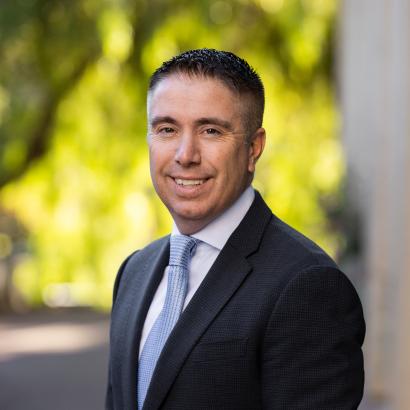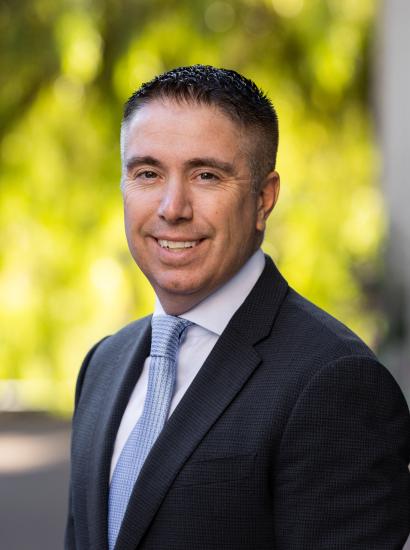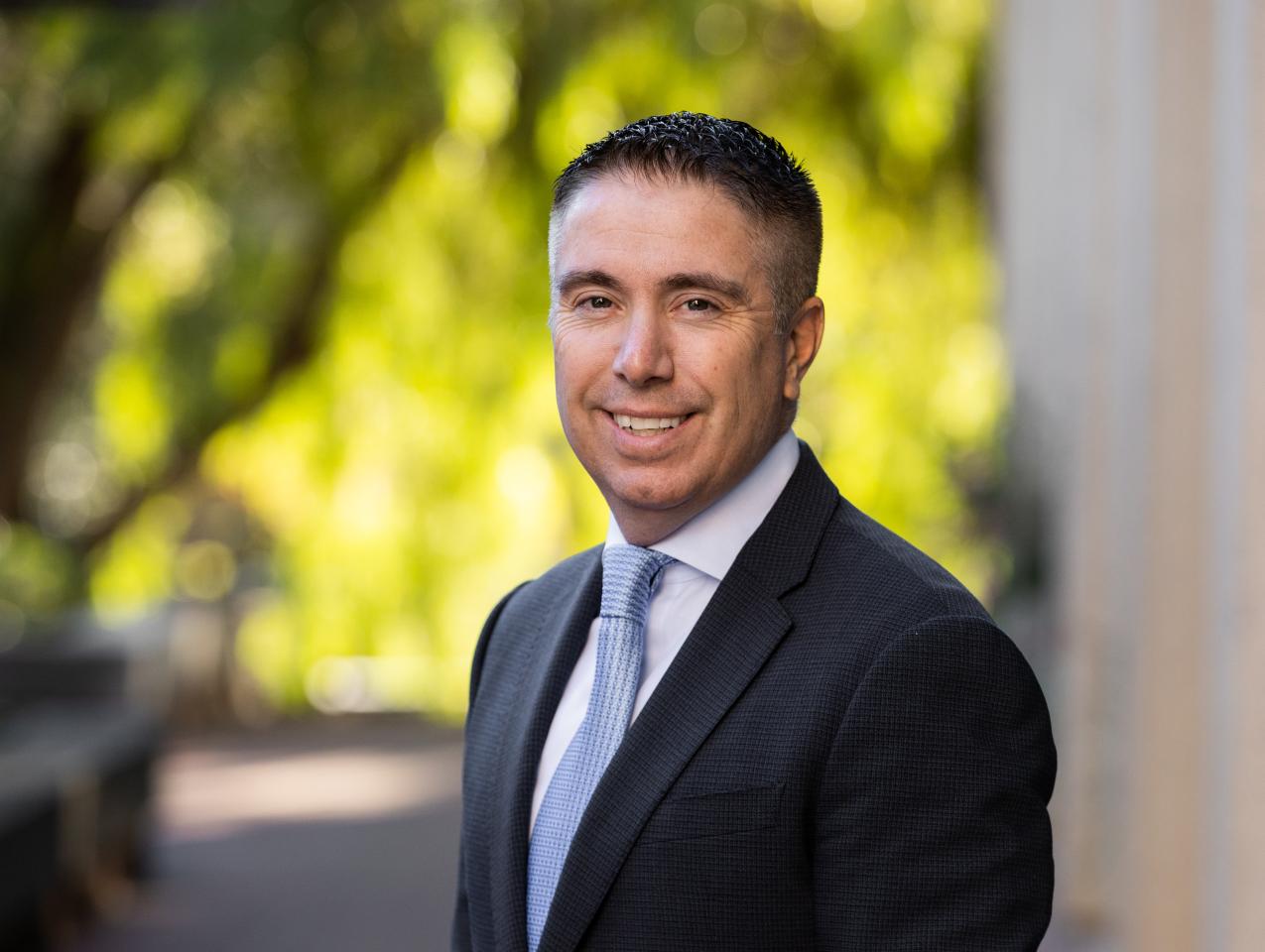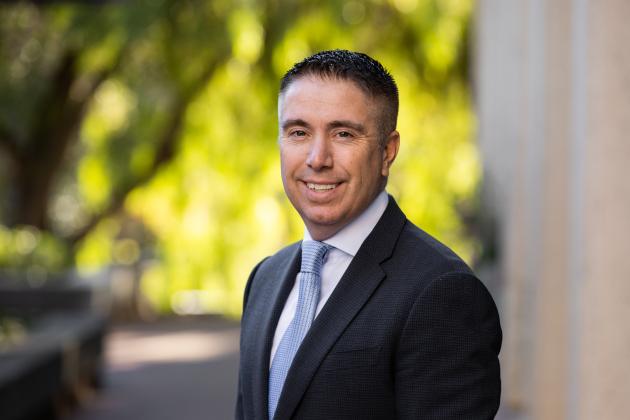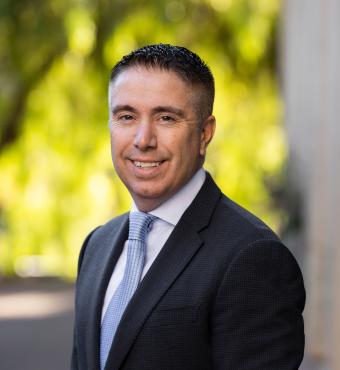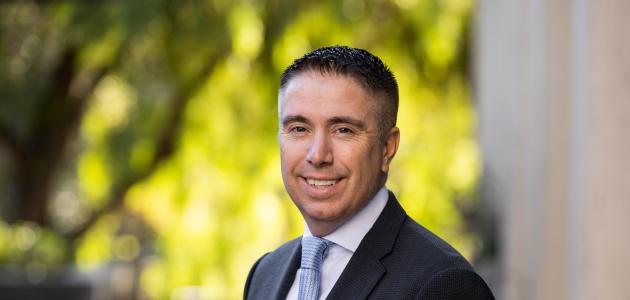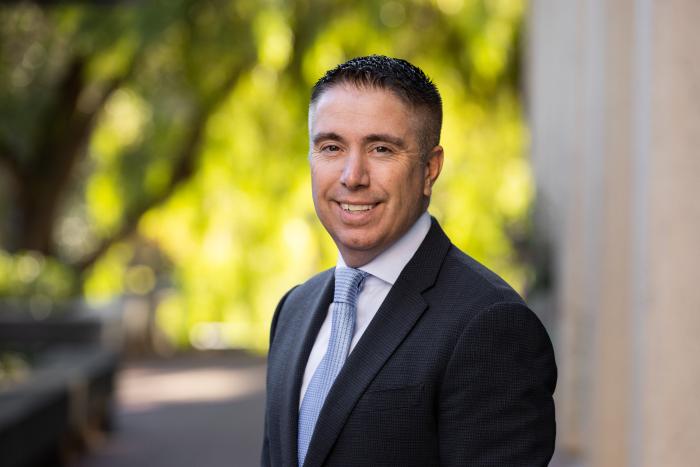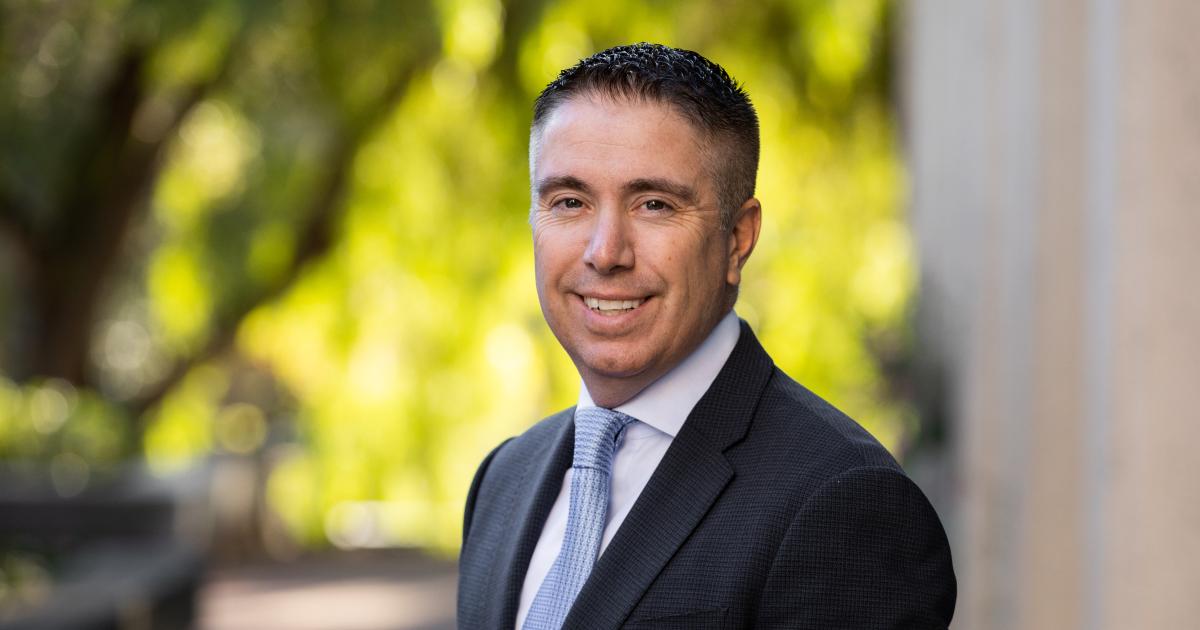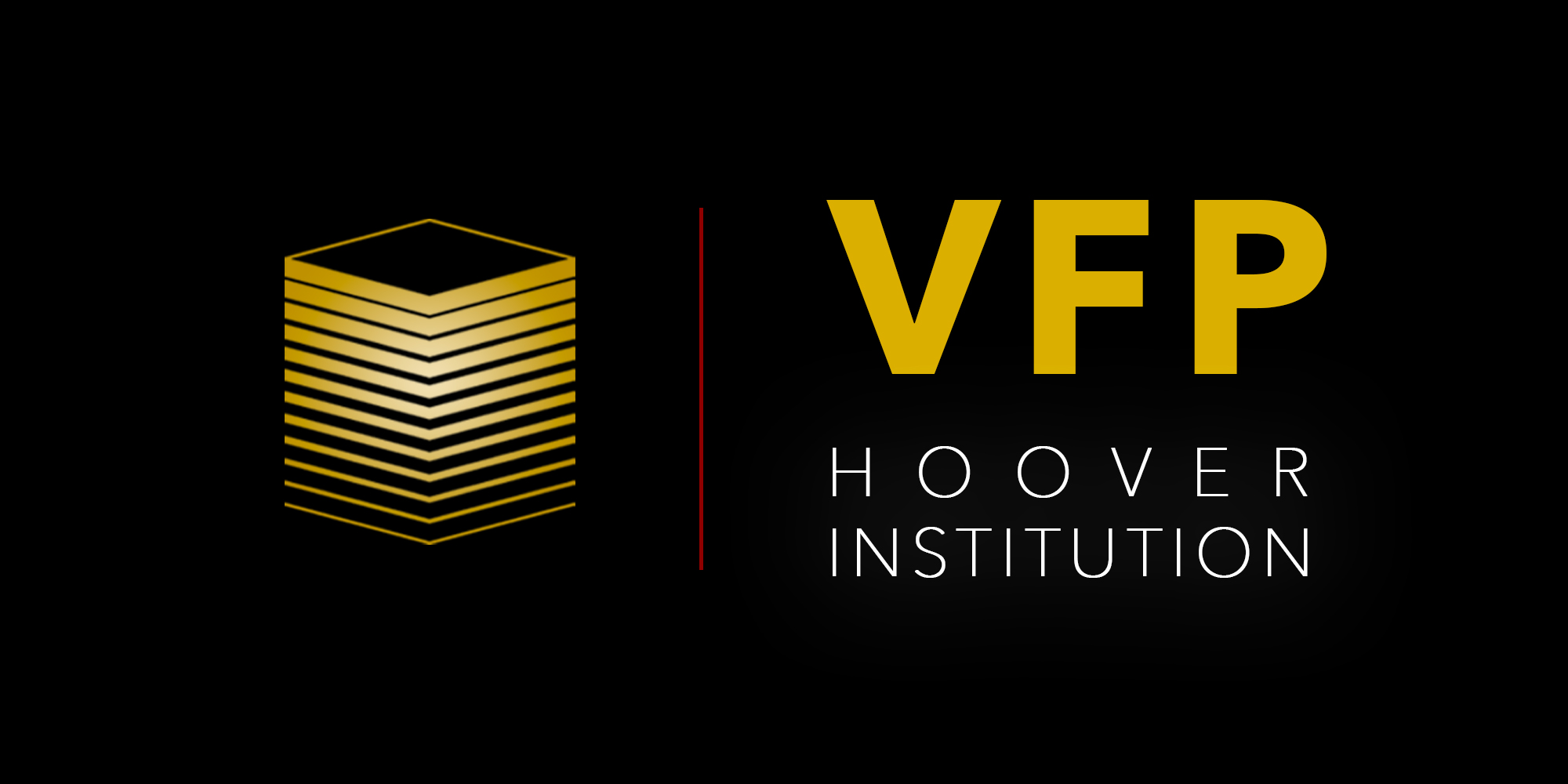For a new series on Hoover.org, alumni of Hoover’s Veteran Fellowship Program (VFP), discuss how their experience in the program shaped their thinking about public policy and efforts to drive positive change in their respective communities. Veterans interested in joining the Veteran Fellowship Program for 2025-26 can apply here by July 31 at 11:59 pm (PST).
In this profile, Hoover senior writer Chris Herhalt talks with Mike Wendler, a member of the 2022–23 cohort of veteran fellows. A judge in San Mateo County, Wendler served as an active-duty US Marine, including tours in Iraq and Afghanistan. He remains in the Marine Corps Reserve, holding the rank of colonel.
During his year at Hoover, Wendler focused on how communities in California and across the country can improve their justice systems’ responses to challenges of mental health and addiction. He spoke to Herhalt about what participating in the Veteran Fellowship Program meant to him.
Chris Herhalt: So, Mike, thanks for joining me. I appreciate your taking the time, especially when you’re serving right now. So, I wanted to start with what motivated you apply to join the Hoover Veteran Fellowship program, and what was your capstone or your area of focus?
Col. Mike Wendler: All right, well, what motivated me to join the Hoover Veteran Fellowship program was the opportunity to merge three distinct parts of my professional life—military service, public policy, and the law—into a focused initiative aimed at solving a real-world problem. As a Marine Corps officer, I’ve spent the last 27 years leading Marines and tackling complex operational challenges.
As a superior court judge in California, I see firsthand how often the criminal justice system intersects with untreated mental health and substance abuse issues. The Hoover Veteran Fellowship gave me the tools, mentorship, and policy framework to address a question that’s urgent in my courtroom and in communities across the country: How can we improve the justice system’s response to mental illness and addiction, not just to reduce recidivism but to truly help people rebuild their lives while simultaneously saving taxpayer dollars?
So, my capstone project focused on developing actionable policy recommendations for California and beyond: ways to invest more intelligently in treatment, prevention, and diversion so that we can help our most vulnerable populations reduce crime and use tax dollars—taxpayer dollars—more effectively.
Many of our local communities are doing amazing things to help their people who are struggling, but we seem to lack an avenue that brings all the experts together. So, I joined the Hoover Veteran Fellowship to bring together my experience as a Marine and a California judge to tackle a problem I see every day in court, a problem that I’m often powerless to solve.
And the system isn’t built to deal with mental health and addiction. My project focuses on changing that, on finding smarter, more compassionate ways to reduce crime, help vulnerable people, and spend taxpayer dollars more effectively.
Chris Herhalt: Now bringing that idea to Hoover, with your background, how did your time at Hoover shape what you did in your capstone and your approach to policy?
Col. Mike Wendler: My time at Hoover pushed me to think beyond the courtroom and the military, and to approach leadership and policy from a broader systems-level perspective.
As a judge and a Marine, I’ve always valued discipline, accountability, and results. But Hoover challenged me to ask deeper questions: What’s driving these outcomes? What policies are reinforcing the status quo? How do we bring together experts from different walks of life and with different perspectives to share best practices and find common ground? And most importantly, what practical steps can we take to effectuate real change?
The fellowship sharpened my ability to frame complex problems in a way that policymakers can act on. It also reminded me that leadership isn’t just about making decisions—it’s about building coalitions, listening across sectors, and moving ideas into action.
Chris Herhalt: What were the most valuable aspects of the fellowship to you? Could you name some people, some resources, or some experiences?
Col. Mike Wendler: Yeah, I’d say the most valuable part of the fellowship was the people.
Being surrounded by veterans who brought the same commitment to service and to new arenas like policy, tech, law, and business was incredibly energizing. Being around veterans who still want to get back to their communities. We all came from different backgrounds, but we were all focused on solving real problems in ways that are practical and principled.
The mentorship from Hoover scholars and staff was also exceptional. They didn’t just offer academic insight. They helped us pressure-test ideas, connect with experts, and think strategically about how to make our work resonate with decision makers. And where else do you get to sit back and listen to someone like Sec. Condoleezza Rice give insight and do it all for free?
And finally, the experience of presenting my project in a policy setting, not just in theory but as a serious proposal for change, was incredibly valuable. It gave me confidence that reform is possible, especially when it’s informed by experience and backed by sound research.
Chris Herhalt: How has your participation in the program influenced your working goals after completion?
Col. Mike Wendler: The fellowship sharpened my sense of purpose and gave me a road map for impact. It allows me to continue to advocate for smarter criminal justice policies, especially around mental health and substance abuse, both in and out of the courtroom. It also gave me the confidence to engage more directly with policymakers and community leaders, knowing that I could speak not just from experience but with a policy framework to back it up.
More broadly, the program reinforced a mindset I carried from the military: Don’t just identify problems; build coalitions and lead the effort to fix them. That’s become central to my work as a judge and in my ongoing public service.
Chris Herhalt: So, what would you say to other veterans considering applying to be part of the Veteran Fellowship Program?
Col. Mike Wendler: To any veteran considering the Hoover fellowship and wanting to make a difference somewhere, do it. You’ve already led in some of the most demanding environments imaginable and learned skills you can only learn from serving in uniform.
This program gives you the tools to apply that leadership in the policy arena. It’s not about learning for the sake of learning or adding something to your LinkedIn profile. It’s about identifying problems in your community and solving real problems with real-world consequences. And you’ll be surrounded by like-minded peers who share your sense of mission.
To those who want to support the program, this is one of the smartest investments you can make in public service. Veterans bring unmatched discipline, perspective, and commitment to getting things done. Hoover gives them that platform to turn that into a lasting impact in our communities. What could be better in this world?
Chris Herhalt: Okay, and how did your involvement in VFP tie into your work as a judge?
Col. Mike Wendler: My involvement in Hoover Veteran Fellowship Program directly complements my work as a judge. Every day in my courtroom, I see the human cost of untreated mental illness and addiction. People cycling through the justice system not because they’re inherently bad people but because they’re sick and unsupported.
The fellowship gave me the space, tools, and policy support to take a step back and ask, how can we do better? That’s what led to my capstone project and the mental health symposium I hosted at Hoover. We brought together leaders in law enforcement, public health policy, and the courts to identify what’s working and what’s not when it comes to treating people rather than just processing them.
The ideas generated there are already shaping conversations in my county and beyond. So, for me, the fellowship wasn’t an academic exercise. It was a launchpad for real change, grounded in what I see every day on the bench, when I’m powerless. You become a judge or a prosecutor to make a difference, and often I’m powerless to do so in the way things are set up now.
And hopefully this project will lead to real change that allows us to help others.
Chris Herhalt: So as a member of the “9/11 generation” or perhaps the “next greatest generation,” what do you think America owes the 9/11 generation, and where and what should veterans like you be focusing on in your communities?
Col. Mike Wendler: I think it’s flattering to be mentioned in the same sentence as World War II heroes, whom I respect so much, and it’s definitely an honor. But I think most veterans I know aren’t looking for recognition. They’re looking for purpose. That’s why we signed on the dotted line.
We trained, fought, and led through some of the most complex conflicts in modern history. Now that the wars have wound down, the mission hasn’t ended; it’s just changed. The Marine sailors, soldiers, and airmen that I reflect on, that I served with, answered the call during active, complex conflict.
Most joined during active wartime knowing they were going to deploy, and they did deploy multiple times. That is just absolutely remarkable to me. They are not victims. They’re warriors—brave, uncomplaining, and often overlooked, especially as they return to communities disconnected from military life. As someone who’s born and raised and continues to serve in the Bay Area, I’m often the only Marine my closest friends have ever met.
What America owes this generation to me is opportunity. We must honor their service not just with words but through meaningful engagement, through opportunities in public service, leadership, and community reintegration. These veterans still have so much to give. They’re simply amazing. Veterans bring leadership, resilience, and a bias for action, traits every community needs.
We don’t need or probably want to be put on a pedestal. We need to be put to work. That means opening doors in public service, education, entrepreneurship, and policy. As for where we should focus, it’s right where we live. We owe it to our communities to take our training, leadership, and experiences to make our communities better and stronger and above any political fray.
In the courts, the classrooms, the neighborhoods where people are struggling, veterans have a deep understanding of service. And in this next chapter, service means helping to build stronger, more just, and more resilient communities.







